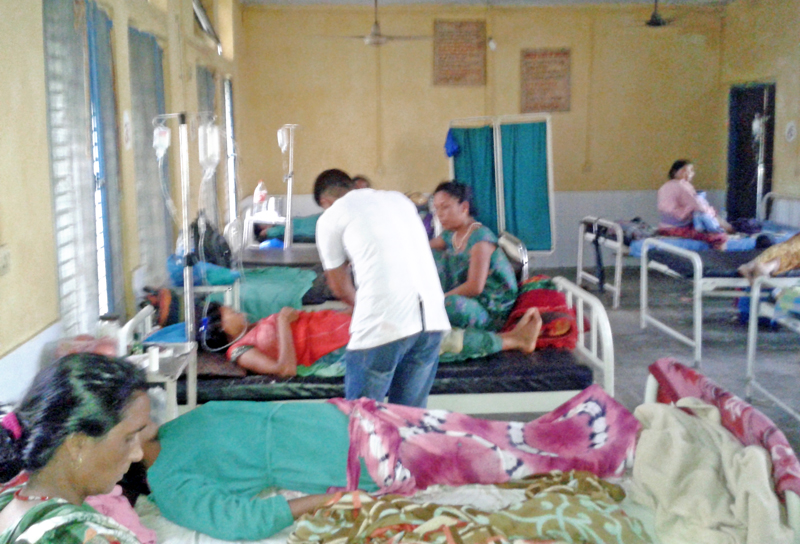Unsafe abortion continues unabated
Kathmandu, February 10
Despite the legalisation of abortion in Nepal in 2002, the number of abortions carried out by untrained and unauthorised persons is still worryingly high in Nepal, according to a study.
The Centre for Research on Environment Health and Population Activities and US-based Guttmacher Institute recently conducted the first-ever national study on abortion incidents and unintended pregnancies in Nepal. The study showed that of approximately 323,000 induced abortions in the country until 2014, only 42 per cent were carried out by authorised service providers.
The Health Ministry has issued permits to provide abortion and post-abortion services to over 12,000 health facilities in the country.
The study was conducted among women of reproductive age (15 to 49 years) across 27 districts of the country. A total of 386 health institutions were surveyed during the research, said Chief Researcher and Associate Director of CHREHPA Dr Mahesh Puri.
The report said about half of all pregnancies in Nepal were unintended in 2014. The proportion of unplanned pregnancies is highest in the Central Development Region (59.1 per cent), and lowest in Far-western Development Region (34 per cent).
Similarly, abortion rates also differed considerably by region. Abortion rate was lowest in the far-western region (21 abortions per 1,000 women aged 15 to 49 years) and highest in the central development region (59 abortions per 1,000 women).
"Although we have made significant progress in expanding safe and legal abortion services, greater efforts are still needed to ensure that all women can access the care they need," said Dr Naresh Pratap KC, director of Family Health Division.
In Nepal, abortion is legal for all cases up to 12 weeks' of gestation on request, up to 18 weeks' gestation in cases of rape or incest, and at any time if the pregnancy poses a danger to the woman’s life, or physical or mental health, or in case of foetal abnormality. Nationally, 31 per cent of all pregnancies, and 62 per cent of unintended pregnancies ended in abortion.
The legalisation of abortion contributed to significantly reducing the country's maternal mortality rate, which fell from 580 deaths per 100,000 live births in 1996 to 190 in 2013.
Dr Puri said, "Nepali women still face barriers, including lack of knowledge about the law and about where they can access services."






